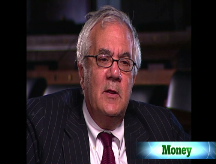Mortgage fraud still soaring
A crackdown on underwriting has failed to halt an explosion of fraudulent home loans.
| 30 yr fixed | 3.80% |
| 15 yr fixed | 3.20% |
| 5/1 ARM | 3.84% |
| 30 yr refi | 3.82% |
| 15 yr refi | 3.20% |
NEW YORK (CNNMoney.com) -- With the housing market in turmoil and lending standards tougher than ever, you'd think that the kind of unscrupulous activity that helped plunge the industry into crisis would be a thing of the past.
You'd be wrong. Mortgage fraud is still soaring, according to a new report from the Mortgage Asset Research Institute (MARI), a division of ChoicePoint. (CPS)
The study found that the number of fraudulent loans issued during the first three months of 2008 skyrocketed 42% compared with the same period in 2007.
The big jump was a surprise even to MARI. "We were stunned," said spokeswoman Jennifer Butts. "It shows that some folks [in the industry] are desperate."
Loan applications are at an eight-year low, according to the Mortgage Bankers Association, and deals are harder than ever to come by for real estate professionals. Loan originators, real estate agents and property appraisers are all scrambling for clients.
Making things even more difficult, mortgage lenders have tightened underwriting standards after getting clobbered with soaring delinquencies and foreclosures.
Now, the credit histories of many applicants are not good enough to get approved for mortgages, except through some creativity - or chicanery - by brokers and loan officers.
The most common type of fraud that MARI found pertained to employment history and income. Many applications exaggerated how much borrowers earned and misrepresented their job descriptions.
The biggest increase came from a jump in the number of undisclosed or incorrectly reported debts, liens and judgments.
Most fraud involves average home buyers whose lending officers feel compelled to tweak their applications. But some involves criminal enterprises.
Cases of identity theft accounted for 6% of all mortgage fraud in Illinois, for example. In many of these deals, crime rings use phony identities to obtain mortgages on properties they don't own, then take the cash and vanish.
"The reality is that the industry's structure has not changed," said Bill Garber, a director of government affairs for the Appraisal Institute trade group. "Mortgage brokers are paid on commission; loan officers are rewarded for volume. There are the same pressures to get things done."
The regulatory agencies, he said, are overwhelmed. But the FBI did step up its efforts to combat mortgage fraud recently. In June, its Mortgage Fraud Task Force arrested more than 400 mortgage brokers, lenders, appraisers and other industry insiders responsible for more than $1 billion in losses.
Despite these efforts, MARI doesn't expect things to change any time soon. "Loan application misrepresentation continues to plague the industry," the group said in a press statement. "Mortgage fraud will not disappear - in fact, it is expected to significantly grow, evolve and penetrate new areas within the industry."
MARI compiled its statistics from data submitted by its clients, which include all of the biggest names in the lending industry: Fannie Mae (FAM) and Freddie Mac (FRE, Fortune 500) - the government sponsored mortgage giants - as well as private lenders Wells Fargo (WFC, Fortune 500), Bank of America (BAC, Fortune 500) and J.P.MorganChase (JPM, Fortune 500) as well as scores of smaller lenders.
Florida had the largest volume of mortgage fraud in the first three months of 2008, accounting for about 24% of the national total.
Second was California, which was followed by Illinois, Maryland and Michigan, all of which had about the same number of incidents.
The Miami metro area was ground zero for mortgage fraud during the period; it accounted for nearly half of all of Florida's incidents while the Los Angeles area produced 52% of California's.
Because of agreements with its clients, MARI does not reveal the total numbers of fraud incidents.
Until systems are implemented to foster the development of ethical, responsible mortgage originators, said Garber, the "bad actors" will continue to find places in the lending industry and mortgage fraud will go on as before. ![]()



